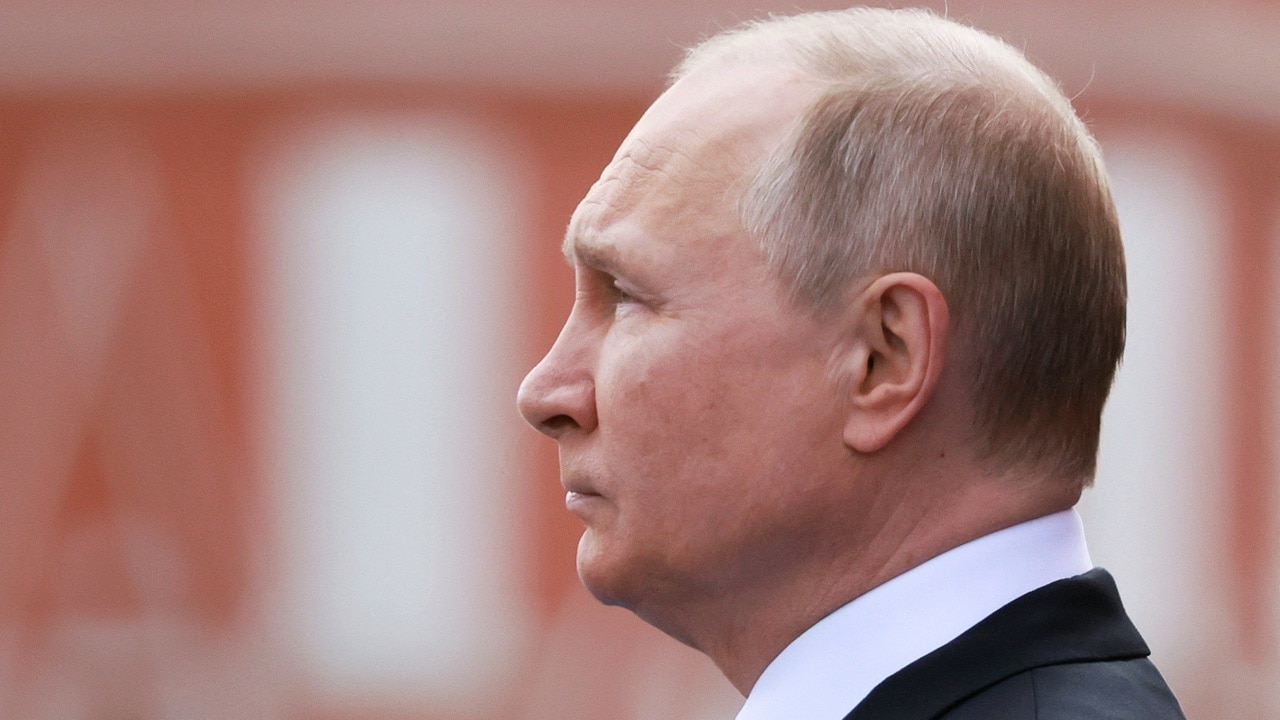Russians have responded in many ways to the Ukrainian advances in the country’s northeast. Some municipal officials called for Putin’s impeachment for bringing about the deaths of many young Russians for no good reason. The conservative newspaper Zavtra (Tomorrow) assured readers that Russia has known many setbacks but always bounces back. A Zavtra historian recalled that Prince Aleksandr Nevsky stopped the heavily armed Swedish invaders in 1242 and negotiated a mutual aid relationship with the Mongolian Golden Horde—a possible reference to Putin’s ostensible friendship with Xi Jinping. Hawkish bloggers urged the Kremlin to conscript men of fighting age and mobilize the nation for all-out war.
The popular newspaper Moskovskii Komsomolets published articles that seem to reflect Putin’s response to the crisis. Short of trained combat troops, fighting spirit, and sophisticated weaponry, Russian forces could and would use their still abundant brute power to pulverize Ukrainian infrastructure and dwellings. They would destroy electric power to knock out lighting, paralyze command centers, stop trains, and buses from running. To critics who say that civilians should not be targeted, the Komsomolets replied that many facilities are dual-purpose. Hospitals, for example, can serve military and civilian needs and so should be attacked.
The Komsomolets were unhappy that Zelensky said Kyiv would accept no ultimatums and fight until all its lands were liberated. It denounced Zelensky’s security adviser Aleksei Danilov for saying Ukraine would fight until Russia is demilitarized and no longer as it is today.
Where do Ukrainians get such bold ideas? The Komsomolets asked. Why don’t they fear Russia? Ukrainians think they have a national government and are part of the West. Also, they misread Russia’s “gestures of goodwill” (sic!). Dmitry Medvedev, now deputy chair of Russia’s Security Council, reacted sarcastically: “A certain Zelensky said that he would not conduct a dialogue with those who put forward ultimatums. But the current ‘ultimatums’ are a children’s warm-up before the requirements of the future. And he knows them: the total surrender of the Kyiv regime on Russia’s terms.”
“Terrible words,” the Komsmolets observed. “But for now it’s only a ‘baby workout’. We will see the proof. Bright flashes in the country where the light is extinguished.”
Indeed, as Zelensky observed, Russia aimed to “deprive people of light and heat” by causing power cuts across eastern Ukraine. Blackouts reportedly affected millions of people in the eastern Kharkiv and Donetsk regions. Kharkiv mayor Ihor Terekhov said Russian attacks on civilian infrastructure left much of his city without power or water. The mayor and the region’s governor called for calm, saying the emergency services were working to repair damage and put out fires. The governor of the neighboring Sumy region said over 130 settlements in one district alone were without power. Similar problems were reported in Dnipropetrovsk and Poltava regions.
In a defiant post on social media after the power cuts, President Zelensky accused Russia of carrying out “terrorist acts” by targeting civilian infrastructure.” Cold, hunger, darkness and thirst are not as terrible and deadly for us as your ‘friendship and brotherhood’,” he wrote on Telegram.
The brutal character of Vladimir Putin’s inner makeup was revealed on February 8, 2022, when he spoke to a press conference following a meeting with French President Emmanuel Macron—two weeks before Russia’s invasion began. Ukrainian leader Volodymyr Zelensky, Putin asserted, had to implement the Minsk agreements, even if he did not like any part of them. To make himself clear, Russia’s top leader for twenty-two years quoted from a bit of prison vulgarity: ”Like it or not, you’ve got to do it.” Putin altered the original text, which ends “be patient, my beautiful one.” Putin skipped the necrophilic context of the original:
A man, looking into a coffin, speaks to the corpse and says:
My dear one in your coffin
I settle next to you and f____
Like it or not,
You must be patient, my beautiful one.
The four-lines are excerpted from a longer lyric entitled “Beautiful Mold (Krasnaya Plesen’).”
After Russia recognized the Luhansk and Donetsk people’s republics on February 21, 2022, Putin declared that the Minsk agreements “no longer existed”, and that Ukraine, not Russia, was to blame for their collapse. Russia then invaded Ukraine on 24 February 2022.
Brutality overlaps with stupidity as the Kremlin still trifles with nuclear blackmail, a tactic that would hurt Russia and its foes.
Expert Biography: Walter Clemens is Associate, Harvard University Davis Center for Russian and Eurasian Studies and Professor Emeritus of Political Science, Boston University. His books include Can Russia Change?

